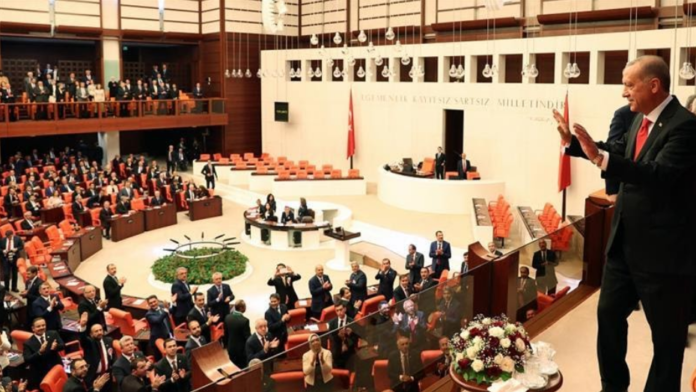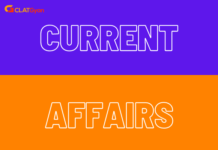Unlock 3 guidelines
News: Government has issued Unlock 3 guidelines.
Allowed activities
- Gymnasiums and yoga institutes have been allowed to function from August 5 and night curfews i.e. Restrictions on the movement of individuals

Source – The Hindu
- during the night, have been revoked.
- Gymnasium and Yoga institutes will still be subject to Standard Operating Procedure (SOP) that will be laid down by the Ministry of Health & Family Welfare (MoHFW).
- List of prohibited operations include:
- Operation of metro rail, cinema halls, swimming pools, entertainment parks, theatres, bars, auditoriums, assembly halls, and similar places.
- Social/ political/ sports/ entertainment/ academic/ cultural/ religious functions and other large congregations
- Schools and colleges too shall remain shut till August 31.
- Restrictions on international air travel and rail travel will continue as it is. Under the Vande Bharat mission, the International air travel of passengers has been permitted in a limited manner.
- The minimum movement of trains is allowed for migrant workers and domestic travel.
- Containment zones will remain under lockdown till the end of August, where severe restrictions as imposed earlier shall continue to remain in force.
- MoHFW will delineate the containment zones and implement the measures within them.
- Freedom would be provided to states, on activities outside the containment zones. Except for inter-State and intra-State movement of persons and goods, all other activities can be restricted by states.
- National Directives for Covid-19 management including wearing masks in public places and maintaining social distancing, will be continued throughout the country.
- The use of the Aarogya Setu App and work from home as far as possible has been advised.
- Work from home has been advised as far as possible.
Trust set up to build mosque in Ayodhya
News: In line with the Supreme Court verdict in the Ram Janmabhoomi-Babri Masjid case, trust has been constituted to build a mosque in Ayodhya.
About the trust
- The trust will comprise 15 members and has been named the ‘Indo Islamic Cultural Foundation’.
- Trust will facilitate the construction of a mosque on a 5-acre land in Dhannipur village of Ayodhya.
- Center in the Ram Janmabhoomi-Babri Masjid case last year directed the Centre to allot a 5-acre plot to the UP Sunni Waqf Board in lieu of the disputed plot.
- Board had decided in February to accept the 5-acre land allotted by the state government in Ayodhya.
- UP Sunni Central Waqf Board being its founder trustee, has named 9 of the 15 members of the Trust.
- As per the statement made by the board, it has received documents related to the land around March 7 but yet to get physical possession.
- Trust has announced to set-up a mosque in Dhannipur village in Sohawal tehsil of Ayodhya and a centre showcasing Indo-Islamic culture of several centuries, a center for research and study of Indo-Islamic culture, a charitable hospital, a public library and other public utilities at the site in Dhannipur.
I-Day: quarantine must for all personnel
- All defense and police personnel and senior officers who will be part of the Independence Day celebrations and may come in close contact with Prime Minister are ordered to stay in quarantine from 1st August.
- The decision has been taken to prevent any possibility of the spread of COVID-19 infection.
- Special Protection Group and Army will take over the security of Red Fort, whereas Delhi police will take over the security of the periphery of the Red Fort.
- Similar protocols are in place for the Army, Navy and Air Force marching contingents.
- The defence personnel who would be close to the Prime Minister during the Guard of Honour ceremony will be quarantined at a camp.
- The officers who will be present at the ramparts of the Red Fort when PM unfurls the Tricolour also have to undergo quarantine.
- A total of 1,500 “corona warriors” and 400 NCC cadets have been invited to the event and the event will be restricted for the general public in view of the pandemic.
New Education Policy, 2020
News: Union Cabinet has recently approved a new education policy, 2020.
Details of new education policy
This is the first new education policy after National Policy on Education, framed in 1986, in 34 years, based on the draft report of former ISRO chief K. Kasturirangan, submitted in 2018.
What are the changes made by new policy?
New policy has made major reforms in the structure of school and higher education including teaching.

Courtesy – The Hindu
1.School education reforms
- 6-14 years of mandatory schooling has been expanded to 3-18 years of schooling. Policy covers three years of pre-schooling, thus including age group of 3-6 years under the school curriculum.
- The new system will have 12 years of schooling with three years of Anganwadi/ pre-schooling.
- Policy sticks to the ‘three language formula’, which created uproar over making Hindi mandatory, but now change have been made. Now, selection of the 3 languages will be based upon choices of States, regions, and of course the students themselvesas, but at least two of the three languages must be native to India.
- A National Mission on Foundational Literacy and Numeracy will ensure basic skills at the Class 3 level by 2025. A new curricular framework is to be introduced, including for the pre-school and anganwadi years.
- Indian knowledge systems, including tribal and indigenous knowledge, will be incorporated into the curriculum in an accurate and scientific manner. Students will begin classes on coding as well as vocational activities from Class 6 onwards.
Board exam
- Class 10 and 12 board examinations will be made easier, to test core competencies rather than memorised facts, with all students allowed to take the exam twice.
Digital drive

Courtesy – The Hindu
Strcuture change
- With an emphasise on Early Childhood Care and Education (ECCE), 10+2 structure of school curriculum is to be replaced by a 5+3+3+4 curricular structure.

Courtesy – Timesnow
2. Changes made to higher education system
Higher Education Commission of India(HECI) will be an umbrella body replacing UGC, AICTE, NCTE. Except the bodies regulating medical and legal education, HECI will regulate every other types of higher education institutions.
Both private and public higher education institutions will be governed by the same set of norms for regulation, accreditation and academic standards.
Students can select subjects of their choice across the stream and there would be no rigid separations between arts and sciences, between curricular and extra-curricular activities, between vocational and academic streams.
Undergraduate degree will be of either 3 or 4-year duration with multiple exit options within this period i.e. study for 1 year, 2 year, 3 year or 4 year. Based on the duration students will be provided with Diploma for 1 year education, Advanced Diploma for 2 year education, Bachelor’s degree for 3 and 4 years.
As per the new policy, M. Phil programme would be discontinued and completion of masters would be an eligibility for pursuing Ph.D.
Turkey approves new social media law
News: The new legislation would require social media providers to store user data in Turkey.

Courtesy – Aljazeera
New law is said to be introduced to make foreign social media sites more accountable.
News details
New social media law will create a “chilling effect” on dissenting voices who have resorted to Twitter and other online platforms. It allows authorities to remove content from platform rather then blocking access as being done previously.
Companies not complying with the law could have their bandwidth slashed by up to 90%. Law applies to all major firms including Facebook and YouTube.
They must need to store local users’ information in Turkey. Estimated 90% of major media in Turkey comes under the ownership of the state or is close to the government.
The law requires major social media companies such as Facebook and Twitter keep representative offices in Turkey to deal with complaints against content on their platforms.
Indians the biggest group getting Australia citizenship
News: More than 38,000 Indians became Australian citizens in 2019-2020, a 60% increase from the previous year.
Out of the total 2,00,000 people who became Australian citizens in 20192020, Indians are in highest number followed by Britishers.
During the ongoing COVID19 health crisis, the Australian government has started online ceremonies which have seen over 60,000 people being conferred the citizenship.
As per the Australian Bureau of Statistics’s 2016 census, 6,19,164 people in Australia declared that they were of ethnic Indian ancestry. This comprises 2.8% of the Australian population. Among those, 5,92,000 were born in India.
Hetero launches generic version of Favipiravir
News: Hetero launches Favipiravir in India under the brand ‘Favivir’ to treat Covid-19
This is the second drug developed by Hetero after the generic version of Remdesivir injection, Covifor to be administered intravenously in a hospital for treatment of severe Covid-19.
Drug has been approved by Drug Controller General of India (DCGI) for manufacture and market the generic drug.
As per the statement made by company, drug is being manufactured at the global regulatory authorities such as the USFDA and the EU approved world-class formulation facility, backed by strong vertical integration capabilities.
Hetero group has a presence in 126 countries across the globe. Its 300 products includes key therapeutic categories like cardiovascular, HIV/AIDS, oncology, neurology, hepatitis, nephrology, urology, diabetes, ophthalmology, hepatology, and immunology.
ICRA appoints N Sivaraman as MD & group CEO
News: Indian rating Agency, ICRA an arm of the global ratings major Moody’s has appointed Larsen & Toubro (L&T) veteran N Sivaraman as its Managing Director and Group Chief Executive Officer.
He held senior positions including as Wholetime Director and President of L&T Finance Holdings, appointed as COO at IL&FS in 2018 with responsibilities for asset monetisation and creditor engagement and loan restructuring by the government-constituted board to help turn the company around.
Last year, ICRA Managing Director and Group Chief Executive Officer Naresh Takkar was sacked, after receipt of an anonymous complaint by SEBI alleging misconduct at the credit rating agency under him.
Several rating agencies have come under scanner after the IL&FS crisis.
ICRA Limited(formerly Investment Information and Credit Rating Agency of India Limited) was set up in 1991 by leading financial/investment institutions, commercial banks and financial services companies as an independent and professional investment Information and Credit Rating Agency. The international Credit Rating Agency Moody’s Investors Service is ICRA’s largest shareholder.
Allrounder Rajat Bhatia announces retirement

News: Domestic stalwart Rajat Bhatia announces retirement from cricket.
He was a Delhi all-rounder and announcement of retirement from all forms of cricket bring end to a first-class career spanning almost two decades.
He made hi first-class debut for Tamil Nadu back in 1999-2000 season.
Bhatia last played a first-class match in 2019 Ranji Trophy. In the 2018-19 season, he scored 700 runs at an average of 175 in the Ranji Trophy.
In IPL, he played for Kolkata Knight Riders and Rajasthan Royals. After KKR, he was picked up by Rajasthan Royals for a whopping 1.7 crores ahead of IPL 201
In 121 matches Bhatia scored 6482 runs at an impressive average of 49.10 with 17 hundreds to his name.
Bhatia also picked up 137 wickets at an average of 27.97 in first-class cricket.
COVID- 19 daily report

On July 29, India reported 52,249 new cases and 779 new deaths.
Currently, India is the third worst-hit nation by the pandemic after the US and Brazil.
Across the world, there have now been more than 17 million confirmed cases of COVID-19.
Globally 671,216 deaths have been reported.















